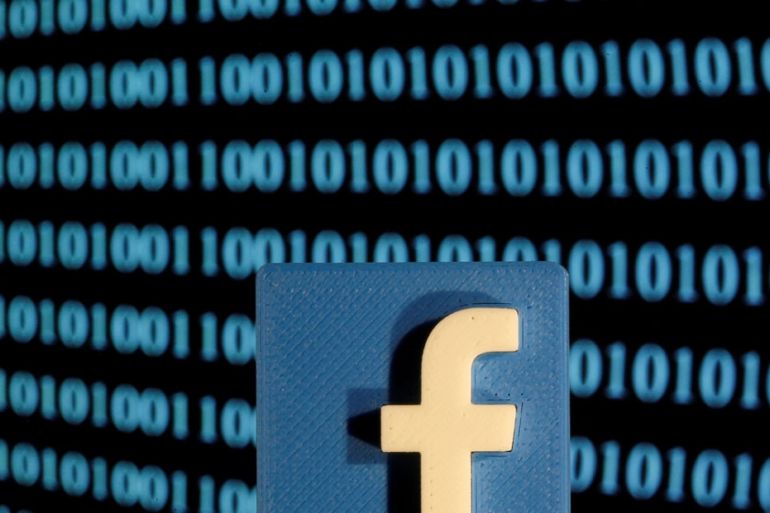Mass shooting rumour spreads in private Facebook group
So-called ‘groups’ are a big part of the company’s growth strategy, but the spread of rumours raises concerns.

Before the annual Blueberry Festival in Marshall County, Indiana, in early September, a woman broadcast a warning to her neighbours on Facebook.
“I just heard there’s supposed to be a mass shooting tonight at the fireworks,” the woman, whose name is held to protect her privacy, said in a post in a private Facebook Group with over 5,000 members. “Probably just a rumour or kids trying to scare people, but everyone keep their eyes open,” she said in the post, which was later deleted.
Keep reading
list of 4 itemsHong Kong’s first monkey virus case – what do we know about the B virus?
Why will low birthrate in Europe trigger ‘Staggering social change’?
The Max Planck Society must end its unconditional support for Israel
There was no shooting at the Blueberry Festival that night, and the local police said there was no threat.
But the post sparked fear in the community, with some group members cancelling their plans to attend, and shows the power of rumours in Facebook Groups, which are often private or closed to outsiders. Groups allow community members to quickly spread information, and possibly misinformation, to users who trust the word of their neighbours.
These groups and other private features, rather than public feeds, are “the future” of social media, Facebook Inc Chief Executive Mark Zuckerberg said in April, revealing their importance to Facebook’s business model.
The threat of misinformation spreading rapidly in Groups shows a potential vulnerability in a key part of the company’s growth strategy. It could push Facebook to invest in expensive human content monitoring at the risk of limiting the ability to post in real time, a central benefit of Groups, and Facebook in general, that has attracted millions of users to the platform.
When asked if Facebook takes accountability for situations like the one in Indiana, a company spokeswoman said it is committed to maintaining groups as a safe place, and that it encourages people to contact law enforcement if they see a potential threat.
Facebook Groups can also serve as a tool for connecting social communities around the world, such as ethnic groups, university alumni and hobbyists.
Facebook’s WhatsApp messaging platform faced similar but more serious problems in 2018 after false messages about child abductors led to mass beatings of more than a dozen people in India, some of whom have died. WhatsApp later limited message forwards and began labelling forwarded messages to quell the risk of fake news.
Fireworks fear
The Blueberry Festival post caused chaos in the group, named “Local News Now 2…(Marshall and all surrounding Counties).”
In another post, which garnered over 100 comments of confusion and worry, a different member urged the woman to report the threat to the police.
“This isn’t something to joke about or take lightly,” she wrote.
The author of the original post did not respond to repeated requests for comment.
Facebook’s policy is to remove language that “incites or facilitates serious violence”, the company spokeswoman said, adding that it did not remove the post and that it did not violate Facebook’s policies because there “was no threat, praise or support of violence”.
Cheryl Siddall, the founder of the Indiana group, said she would welcome tools from Facebook to give her greater “control” over what people post in the group, such as alerts to page moderators if posts contain certain words or phrases.
But Siddall said, “I’m sorry, but that’s a full-time job to sit and monitor everything that’s going on in the page.”
A Facebook spokeswoman said page administrators have the ability to remove a post if it violates the group’s proprietary rules and that administrators can pre-approve individual posts, as well as turn on post approvals for individual group members.
In a post to its blog, Facebook urged administrators to write “great group rules” to “set the tone for your group and help prevent member conflict”, as well as “provide a feeling of safety for group members”.
David Bacon, chief of police for the Plymouth Police Department in Marshall County, said the threat was investigated and traced back to an exaggerated rumour from children. Nonetheless, he said the post to the Facebook group is “what caused the whole problem”.
“One post grows and people see it, and they take it as the gospel, when in actuality you can throw anything you want out there,” Bacon said.